The Child Project 2.2 (GEF ID 9685) is promoting the Water, Energy, Food, and Ecosystems Nexus approach and is catalyzing action for its adoption and implementation in the Mediterranean area.
Given that water, food, energy, and ecosystems are essential for human well-being, poverty reduction, and sustainable development and that they are interlinked through a Nexus of natural, institutional, economic, and social frameworks, the Water-Energy-Food-Ecosystems Nexus (a.k.a Nexus) approach aims to facilitate the enhancement of water, energy,, and food security, while preserving ecosystems and their functions and increasing climate resilience, by reducing trade-offs, shifting towards more sustainable consumption patterns and improving demand management towards efficiency, building synergies and improving governance across sectors.
The Nexus approach is based on inter-sectoral management, enhanced science-based technical assessment, policy dialogue, governance improvements, mobilization of financing, replicable applications, collaboration, and coordination among involved players and stakeholders.
The Project focuses on producing benefits for the coastal and the marine area. Particularly related to water, by addressing the Nexus, the Project recognizes the relevance of the entire spectrum of competing water needs, stressing the explicit role, interests, and leadership of other sectoral stakeholders beyond the water sector.
In three selected coastal areas, Albania, Lebanon, and Morocco using the Nexus approach, the Project seeks to:
-
Understand the interlinkages among the Nexus sectors and related issues;
-
Identify solutions in response to challenges for fostering water-food-energy security, reduction of land-based nutrient pollution and other pressures, protection of coastal habitats and biodiversity, and enhanced climate change resilience;
-
Support the development of Nexus Strategies and/or Action Plans as parts of existing or in-the-making ICZM plans and strategies;
-
Identify and test novel approaches for addressing management issues and work to upscale these;
-
Develop project proposals enabling priority solutions/interventions to address pressing issues identified.
UNEP/MAP is the Executing Agency of the Child Project, the Executing Partner is GWP Med and the participating countries are Albania, Algeria, Bosnia and Herzegovina, Egypt, Lebanon, Libya, Montenegro, Morocco, and Tunisia.
This Child Project is composed of four Components:
-
Component 1: Institutional strengthening
-
Component 2: Addressing Nexus issues affecting priority coastal zones of the Mediterranean LME.
-
Component 3: Testing and upscaling Nexus solutions
-
Component 4: Consultation and outreach
The actions of Component 1 are aimed at creating, at the regional level, the enabling conditions for implementing the key feature of the Nexus approach: the integration among the most important sectors for the society and economy as well as the environment.
This Component is expected to:
-
Identify the level of integration among Nexus sectors in each interested country and inform the possible development of a Nexus Regional strategic document describing orientations, partners, capacities, and steps for the introduction of the Nexus approach in the natural resources management frameworks.
-
Raise awareness, increase understanding and enhance capacities of institutions and stakeholders, through knowledge exchange and cross-fertilization regarding the Nexus approach.
Component 2 is the key component of the Project. The Nexus approach will be applied in three countries to foster integrated policy-making and management: Albania; at the country level; Lebanon: at the country level; and in occo: in the Tangiers Tetouan region.
This will be done by developing a Nexus Assessment and Nexus Policy Dialogues.
In each of the countries, actions under this Component will be used to:
-
Identify linkages/benefits/trade-offs among sectors, define priorities and assess the trends under different scenarios leading to concrete suggestions for synergic action in the field of policymaking, and management of natural resources.
-
Identify concrete actions for the application of the solutions identified through the Nexus assessments and policy dialogues as well as for the incorporation of the Nexus approach in national policy formulation and decision-making for natural resources management.
-
Identify priority Nexus-related interventions.
Component 3 is dedicated to the identification, funding, and pilot implementation of up to four Nexus solutions in the Partner Countries while Component 4 is dedicated to stakeholder involvement and the promotion of the results of the project.





